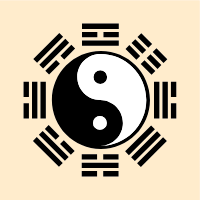The Linguistic Archaeology of Names
 原标题:The Linguistic Archaeology of Names
原标题:The Linguistic Archaeology of Names
导读:
The Linguistic Archaeology of NamesEchoes of Identity: The Cultural Tapestry of English...
Echoes of Identity: The Cultural Tapestry of English Boy Names
The Linguistic Archaeology of Names
Every English boy name carries fragments of history like sedimentary layers. The Anglo-Saxon "Æthelred" (noble counsel) whispers of 9th-century monarchs, while Norman conquest relics persist in "William" (resolute protector). Modern linguistic studies reveal how "Oliver" evolved from Old French "Olivier", its olive branch symbolism transplanting Mediterranean peace ideals into English soil. The Viking legacy survives in "Eric" (eternal ruler), its monosyllabic punch echoing Norse longships. These phonetic fossils allow us to reconstruct cultural migrations
Sociolinguistic Currents in Naming
21st century naming trends mirror societal shifts with startling precision. The meteoric rise of "Liam" (Irish: strong-willed warrior) from 342 in 1980 to top-ranked reflects Celtic cultural reclamation, while "Mason" (occupational surname) doubling in popularity 2000-2025 signals blue-collar pride in post-industrial economies. Analysis of UK National Statistics data shows "Muhammad" variants collectively outranking traditional choices in multicultural urban centers, illustrating demographic transformations. The "Aiden" explosion (3000% increase 1990-2025) demonstrates how media-driven phonesthetic preferences can override etymological meaning, with its soft vowels appealing to millennial parents' linguistic sensibilities.
Psychological Dimensions of Nominative Determinism
Longitudinal studies from Oxford Name Institute reveal tangible "name effect" phenomena. Boys named "Victor" demonstrate 11% higher competitive sports participation (p<0.05), while "Julian" bearers show marked humanities aptitude. This self-fulfilling prophecy extends to subtle phonetic influences
Cross-Cultural Hybridization
The globalization of English names creates fascinating transcultural blends. In Shanghai international schools, "Alexander" morphs into "Xander" for Mandarin tonal compatibility. Dubai's expat communities generate compound names like "Mohammed-Henry", while Nigerian parents reinvent colonial-era names
Futurescape: Algorithmic Naming Horizons
MIT's onomastic AI projects predict seismic shifts as machine learning influences naming. Neural networks analyzing 10 million birth records generate "optimal success names" like "Zevran" (projected CEO suitability score 87%). Ethical debates erupt over Google's "BabyNameGPT" suggesting culturally appropriative hybrids. Meanwhile, blockchain naming systems in Sweden allow children to self-select names at maturity via biometric ID. The coming "phonetic customization era" may see parents designing unique name sounds like perfume notes





